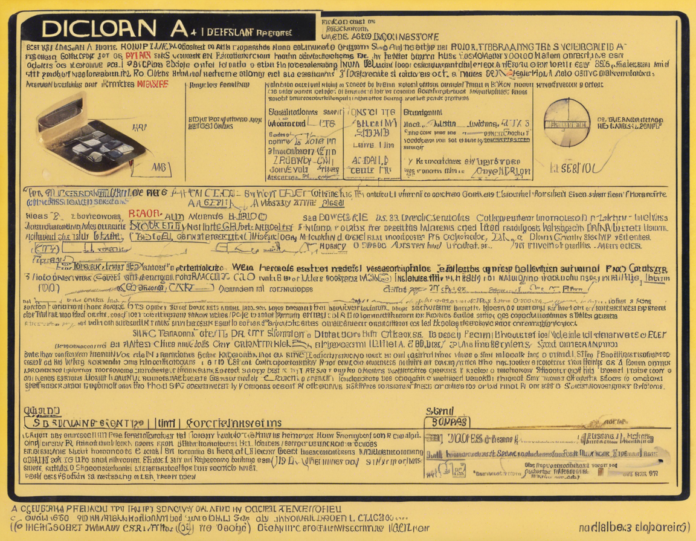Dicloran A tablets are a versatile medication that is widely used for various medical conditions. From pain relief to inflammation control, Dicloran A tablets have proven to be highly effective in managing a range of health issues. In this comprehensive guide, we will explore the versatile uses of Dicloran A tablets, their mechanism of action, dosage, side effects, and precautions to be taken.
Understanding Dicloran A Tablets
Dicloran A tablets are a combination medication that contains two active ingredients: Diclofenac and Paracetamol. Diclofenac is a nonsteroidal anti-inflammatory drug (NSAID) that works by inhibiting the production of certain chemicals in the body that cause pain and inflammation. Paracetamol, on the other hand, is a pain reliever and fever reducer that works by affecting the brain’s chemical messengers involved in the sensation of pain and fever.
Uses of Dicloran A Tablets
-
Pain Relief: Dicloran A tablets are commonly used to relieve mild to moderate pain caused by conditions such as headaches, dental pain, menstrual cramps, and musculoskeletal injuries.
-
Inflammation Control: The anti-inflammatory properties of Dicloran A make it effective in managing conditions like arthritis, tendonitis, and bursitis which are characterized by inflammation and swelling.
-
Fever Reduction: Due to the presence of Paracetamol, Dicloran A tablets are also used to reduce fever associated with infections and other inflammatory conditions.
-
Post-Surgical Pain: Dicloran A tablets are often prescribed post-surgery to manage pain and inflammation.
Mechanism of Action
The Diclofenac in Dicloran A works by inhibiting the enzyme cyclooxygenase, which is involved in the production of prostaglandins, substances in the body that cause pain and inflammation. By reducing the levels of prostaglandins, Diclofenac helps reduce pain and swelling.
Paracetamol, the other active ingredient, works by inhibiting the enzyme cyclooxygenase in the brain. This action helps to reduce the production of prostaglandins, thereby lowering the body’s temperature and providing relief from fever and pain.
Dosage and Administration
The dosage of Dicloran A tablets will vary depending on the individual’s age, weight, and the condition being treated. It is essential to follow the doctor’s prescription and instructions on the label. The tablets are usually taken orally with a full glass of water, with or without food, as directed by the healthcare provider.
Side Effects
While Dicloran A tablets are generally well-tolerated, some individuals may experience side effects such as:
- Nausea
- Vomiting
- Upset stomach
- Dizziness
- Headache
- Rash
If any of these side effects persist or worsen, it is important to consult a healthcare professional promptly.
Precautions
-
Avoid Alcohol: Consumption of alcohol while taking Dicloran A tablets can increase the risk of side effects such as stomach bleeding. It is advisable to limit or avoid alcohol during the course of treatment.
-
Medical History: Individuals with a history of stomach ulcers, kidney problems, heart disease, or hypertension should inform their healthcare provider before starting Dicloran A tablets.
-
Pregnancy and Breastfeeding: Dicloran A tablets are not recommended during the third trimester of pregnancy and breastfeeding, as they may have adverse effects on the fetus and the nursing infant.
Frequently Asked Questions (FAQs)
-
Can I take Dicloran A tablets for toothache?
Dicloran A tablets can be effective for managing toothache as they provide pain relief. However, it is recommended to consult a dentist to address the underlying cause of the toothache. -
How long does it take for Dicloran A tablets to work?
Dicloran A tablets usually start working within 30 minutes to an hour after ingestion. However, the onset of action may vary depending on the individual and the condition being treated. -
Can I take Dicloran A tablets on an empty stomach?
While Dicloran A tablets can be taken on an empty stomach, it is generally recommended to take them with food to reduce the risk of stomach upset. -
Are there any interactions between Dicloran A tablets and other medications?
Dicloran A tablets may interact with certain medications such as blood thinners, diuretics, and antidepressants. It is essential to inform your healthcare provider about all the medications you are taking to avoid potential interactions. -
Can I drive or operate machinery while taking Dicloran A tablets?
Dicloran A tablets may cause dizziness or drowsiness in some individuals. It is advisable to avoid driving or operating machinery if you experience these side effects while taking the medication.
In conclusion, Dicloran A tablets are a versatile medication that offers pain relief, inflammation control, and fever reduction for a variety of conditions. By understanding their uses, mechanism of action, dosage, side effects, and precautions, individuals can use Dicloran A tablets safely and effectively under the guidance of a healthcare provider.

